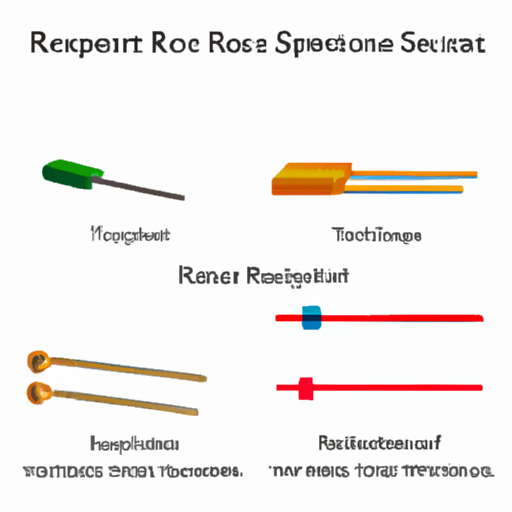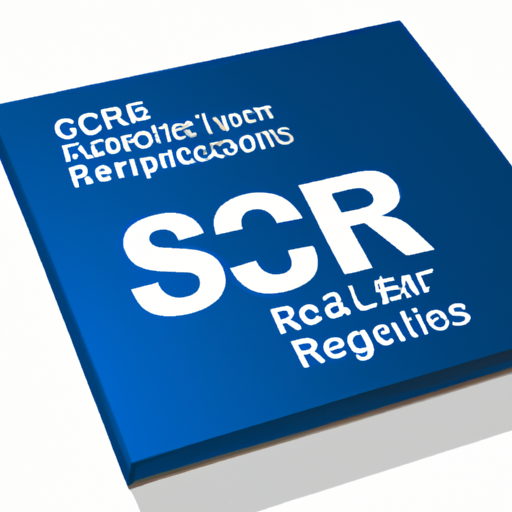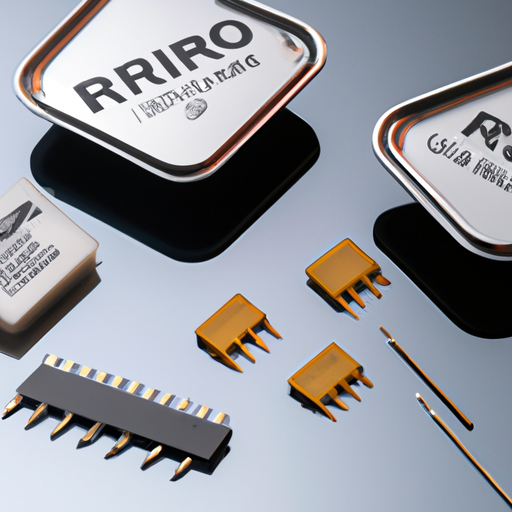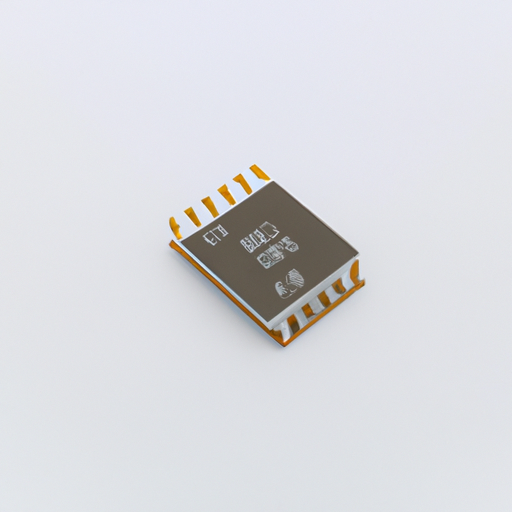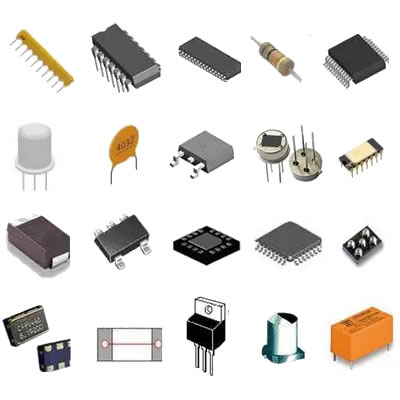What are the important product categories for resistor supply?
Important Product Categories for Resistor Supply
I. Introduction
A. Definition of Resistors
Resistors are passive electronic components that limit the flow of electric current in a circuit. They are essential for controlling voltage and current levels, ensuring that electronic devices operate safely and effectively. Resistors come in various types and specifications, each designed for specific applications.
B. Importance of Resistors in Electronic Circuits
In electronic circuits, resistors play a crucial role in managing current flow, dividing voltages, and protecting sensitive components from excessive current. They are found in virtually every electronic device, from simple household appliances to complex industrial machinery. Without resistors, circuits would be prone to failure, leading to malfunctions and potential hazards.
C. Overview of the Resistor Supply Market
The resistor supply market is a vital segment of the broader electronics industry. With the rapid growth of technology and the increasing demand for electronic devices, the need for reliable and high-quality resistors has never been greater. This blog post will explore the important product categories within the resistor supply market, highlighting their significance and applications.
II. Types of Resistors
A. Fixed Resistors
Fixed resistors have a constant resistance value and are the most commonly used type in electronic circuits. They come in various materials and constructions, each offering unique characteristics.
1. **Carbon Composition Resistors**: Made from a mixture of carbon and a binding material, these resistors are known for their high energy absorption and ability to withstand high temperatures. However, they have a higher tolerance and are less stable than other types.
2. **Metal Film Resistors**: These resistors are made by depositing a thin layer of metal onto a ceramic substrate. They offer high precision, low noise, and excellent temperature stability, making them ideal for applications requiring accuracy.
3. **Carbon Film Resistors**: Similar to metal film resistors, carbon film resistors are made by depositing a thin layer of carbon. They provide better performance than carbon composition resistors and are commonly used in consumer electronics.
4. **Wirewound Resistors**: Constructed by winding a metal wire around a ceramic or fiberglass core, wirewound resistors can handle high power levels and are often used in power applications.
B. Variable Resistors
Variable resistors allow users to adjust their resistance value, making them versatile components in electronic circuits.
1. **Potentiometers**: These are three-terminal devices used to adjust voltage levels in a circuit. They are commonly found in volume controls, light dimmers, and other applications requiring variable resistance.
2. **Rheostats**: A type of variable resistor, rheostats are used to control current flow in a circuit. They are often employed in applications where high power is required, such as in electric motors.
C. Specialty Resistors
Specialty resistors are designed for specific applications and often have unique characteristics.
1. **Thermistors**: These temperature-sensitive resistors change resistance with temperature variations. They are widely used in temperature sensing and control applications.
2. **Photoresistors**: Also known as light-dependent resistors (LDRs), photoresistors change resistance based on light exposure. They are commonly used in light-sensing applications, such as automatic lighting systems.
3. **Varistors**: These voltage-dependent resistors protect circuits from voltage spikes. They are often used in surge protectors and other applications requiring transient voltage suppression.
III. Key Product Categories in Resistor Supply
A. Standard Resistors
Standard resistors are the most commonly used type in electronic devices. They come with various specifications and ratings, including resistance values, power ratings, and tolerance levels. These resistors are essential in consumer electronics, such as televisions, radios, and computers.
B. Precision Resistors
Precision resistors are designed for high-accuracy applications where even the slightest deviation in resistance can lead to significant errors. They are crucial in industries such as aerospace, medical devices, and telecommunications, where reliability and accuracy are paramount.
C. Power Resistors
Power resistors are built to handle high power levels and are used in industrial equipment, electric vehicles, and power supplies. They are characterized by their ability to dissipate heat effectively, ensuring safe operation under high load conditions.
D. Surface Mount Resistors
Surface mount technology (SMT) has revolutionized the electronics industry by allowing components to be mounted directly onto the surface of printed circuit boards (PCBs). SMT resistors offer several advantages, including reduced size, improved performance, and lower manufacturing costs. The trend towards miniaturization in electronics has led to an increased demand for SMT resistors.
E. High-Temperature Resistors
High-temperature resistors are designed to operate in harsh environments where standard resistors would fail. They are commonly used in automotive, aerospace, and industrial applications, where exposure to extreme temperatures is a concern. Material considerations, such as the use of ceramic or specialized alloys, are critical in the design of these resistors.
IV. Factors Influencing Resistor Supply
A. Market Demand and Trends
The growth of the electronics industry, driven by advancements in technology and the proliferation of smart devices, has significantly increased the demand for resistors. Emerging technologies, such as the Internet of Things (IoT) and renewable energy systems, are also contributing to this demand.
B. Supply Chain Considerations
The manufacturing processes for resistors involve sourcing raw materials, which can be affected by global supply chain dynamics. Manufacturers must ensure a steady supply of materials while maintaining quality and cost-effectiveness.
C. Regulatory Standards
Compliance with international standards is essential for resistor manufacturers. Regulatory bodies set guidelines for safety, performance, and environmental impact, which manufacturers must adhere to in order to remain competitive in the market.
V. Challenges in Resistor Supply
A. Competition and Market Saturation
The resistor supply market is highly competitive, with numerous manufacturers vying for market share. This saturation can lead to price wars and reduced profit margins, making it challenging for companies to maintain profitability.
B. Technological Advancements
Rapid technological advancements require resistor manufacturers to continuously innovate and improve their products. Staying ahead of the curve is essential for maintaining a competitive edge in the market.
C. Economic Factors
Fluctuations in material costs, driven by global market conditions, can impact the pricing and availability of resistors. Additionally, global trade policies can affect supply chains, leading to potential disruptions in the resistor supply market.
VI. Future Trends in Resistor Supply
A. Innovations in Resistor Technology
The future of resistor supply will likely see innovations in materials and manufacturing processes. Developments in nanotechnology and advanced ceramics may lead to the creation of resistors with improved performance characteristics.
B. The Role of Automation and AI in Manufacturing
Automation and artificial intelligence (AI) are transforming manufacturing processes across industries. In the resistor supply market, these technologies can enhance production efficiency, reduce costs, and improve quality control.
C. Sustainability and Eco-Friendly Resistor Options
As environmental concerns grow, there is an increasing demand for sustainable and eco-friendly resistor options. Manufacturers are exploring materials and processes that minimize environmental impact while maintaining performance.
VII. Conclusion
A. Recap of Important Product Categories
In summary, the resistor supply market encompasses a wide range of product categories, including standard resistors, precision resistors, power resistors, surface mount resistors, and high-temperature resistors. Each category serves specific applications and industries, highlighting the versatility and importance of resistors in electronic circuits.
B. The Significance of Resistor Supply in the Electronics Industry
Resistors are fundamental components in the electronics industry, enabling the safe and efficient operation of devices. As technology continues to evolve, the demand for high-quality resistors will remain strong.
C. Future Outlook for Resistor Supply and Demand
The future of resistor supply is promising, with opportunities for innovation and growth. By embracing new technologies and addressing market challenges, manufacturers can position themselves for success in this dynamic industry. As the electronics landscape continues to change, the importance of reliable resistor supply will only increase, ensuring that electronic devices function as intended in an ever-evolving world.

